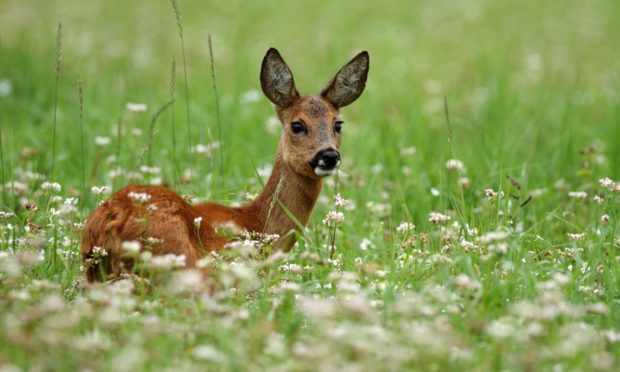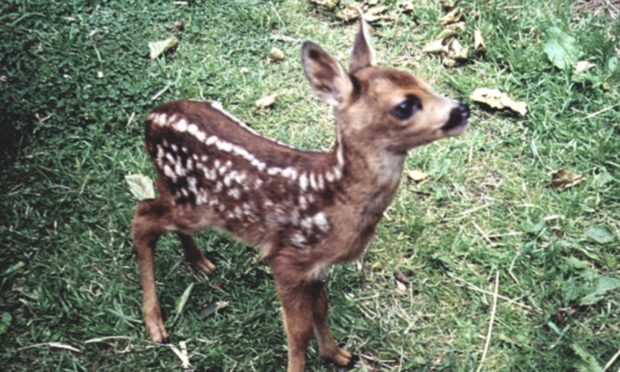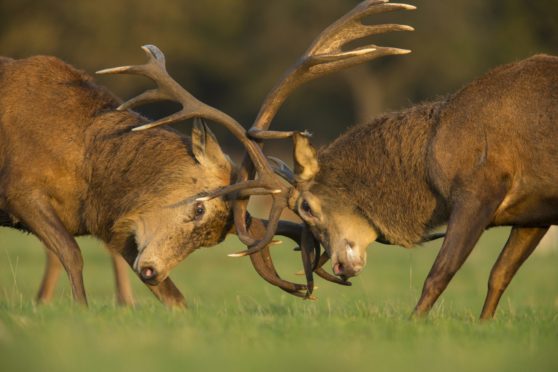Orphaned deer could starve to death under the Scottish Government’s cull plans, says a welfare organisation.
The British Deer Society (BDS) opposes a proposal to shorten the close season for female deer.
According to the BDS, calves that are nutritionally dependent on lactating mothers could suffer.
They say most species need “at least three months” with theirs mothers “if the young are to survive at all”.
The group’s intervention comes after predictions as many as half of Scotland’s deer could be exterminated in forthcoming culls.
The BDS is among nine organisations to have called for a meeting with Scottish Ministers and public agency NatureScot to discuss the proposed changes.
‘Considerable risk’ of starvation
The society warns that shooting lactating females any earlier “carries with it a considerable risk of the death of the dependent young by starvation, unless the juvenile is already accompanying the mother and is shot with it”.
It follows a review of management practices by an independent Deer Working Group.
As a result of the group’s recommendations, the Scottish Government could grant NatureScot more powers to have deer shot.
Numbers would be reduced where deer are damaging crops or woodland and causing road accidents.
No open season ‘until October 1’
There are plans to allow female deer to be shot from September 1.
Meanwhile, the close season for stags could be scrapped.
Orphaned deer could starve as a result of this change, says the BDS.
It has called for the close season to end no earlier than October 1.
The spokesperson added: “Best practice would thus dictate that if a hunter were to shoot a female during the period of lactation, they must ensure that they also kill any accompanying calf.
“We know though that, for myriad well documented reasons, certainty of achieving this is not possible.
“For the welfare of the animals, the female open season should not commence until October 1 at the earliest.”
‘Scientific evidence’
The BDS says the proposal to bring the end of the close season for female deer forward to September 1 is based on scientific evidence.
“The bulk of scientific evidence suggests that by that time the vast majority of calves are no longer nutritionally dependent on the dam,” said the spokesperson.
But the society claims it does not take into account animals born later in the rutting season.
“There is still a significant proportion within the population of late-calvers, particularly among younger animals calving for the first time. These typically do conceive later in the rut and thus calve later in the year.”
The BDS said even the Deer Working Group “felt a better case could be made for mid, or late-September”.
We simply do not know how long this period of social dependency continues.”
British Deer Society
The BDS has also raised welfare concerns about the “social dependency” of young deer on their mothers.
“It is from the mother that they learn the social skills required for being part of a social group,” said the spokesperson.
“From her they learn the home-range and foraging patterns. From her also they may gain a measure of their status within the herd.
“The problem with all of this is that we simply do not know how long this period of social dependency continues.”
Organisations join forces
The other eight groups calling for a meeting with the Scottish Government are NFU Scotland, Scottish Land and Estates, Scottish Countryside Alliance, Scottish Gamekeepers Association, British Association for Shooting and Conservation, Association of Deer Management Groups, Scottish Association for Country Sports and Scottish Venison.
They say legislation should “respect the welfare of deer, the positive benefit of deer to the Scottish economy, and support the rural workforce”.


